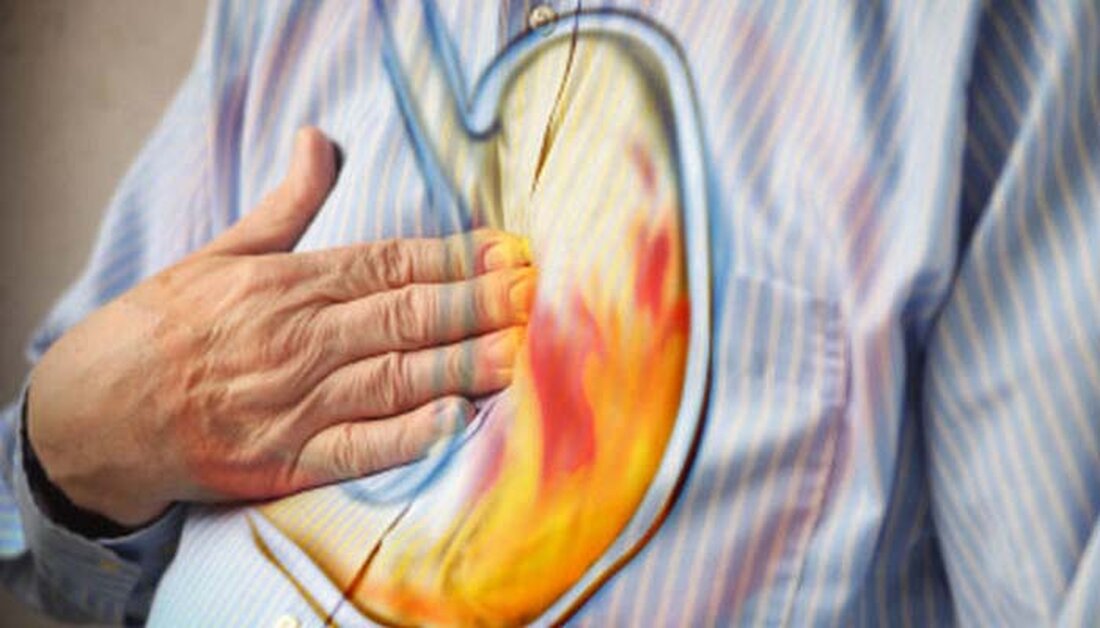Vinegar and heartburn connection revealed
In this article, a nutritionist will explain to you which vinegars that must not be consumed under any circumstances for heartburn and another type of vinegar that, in addition to being a worthwhile dietary supplement, actually helps to significantly reduce your medical impairment. The question, therefore, is what place vinegar has in your heartburn diet plan. There are many vinegar options for Western consumers, but doctors and paramedics believe that only one of them is suitable for heartburn sufferers. Heartburn can be defined as the feeling of burning in the throat or chest area, often with a bitter or sour taste. Heartburn can...

Vinegar and heartburn connection revealed
In this article, a nutritionist will explain to you which vinegars that must not be consumed under any circumstances for heartburn and another type of vinegar that, in addition to being a worthwhile dietary supplement, actually helps to significantly reduce your medical impairment. The question, therefore, is what place vinegar has in your heartburn diet plan. There are many vinegar options for Western consumers, but doctors and paramedics believe that only one of them is suitable for heartburn sufferers.
Heartburn can be defined as the feeling of burning in the throat or chest area, often with a bitter or sour taste. Heartburn may indicate gastroesophageal reflux disease (GERD). Severe cases of GERD can also manifest as difficulty swallowing, asthma, weight loss, and hoarseness. Neglecting GERD can further worsen the impairment into a condition known as Barrett's esophagus, with the risk of esophageal cancer also present. Even though people who are fairly healthy can get heartburn occasionally (but not more than once a week), chronic heartburn is a strong sign of GERD, or acid reflux, as it's also called.
In a healthy organism, a circular muscle allows food and drink to flow into the stomach in one direction, but closes to prevent backflow in the opposite direction. When this muscle becomes weakened due to certain factors discussed below, stomach juices can back up into the esophagus (this is the definition of acid reflux), damaging the interior and causing heartburn. In medical terms, this circular muscle is the lower esophageal sphincter (LES), and the disease is gastroesophageal reflux disease. The LES is the valve or circle of muscle that closes the esophagus from the stomach.
Factors responsible for GERD can include direct pathogens that cause the condition, others that worsen a pre-existing condition. There are both major and minor factors that contribute to GERD, and there are also complex relationships between them. These causative elements include:
Excessive production of stomach acid. In many cases (often due to inherited characteristics), the human organism can overmanufacture stomach acid, which then flows back into the esophagus to corrode the lining cells.
Excessive proliferation of Candida. In certain cases, Candida can overgrow, overwhelming the immune system and producing over 79 different toxins that can affect the body in a variety of ways, including GERD. Candida is the monocellular fungus that in any case occurs in the human body (mainly in the areas of the genitals and the intestinal system) in quantities that are symbiotically controlled by the rest of the body's natural internal flora.
In addition, certain foods, along with white flour and sugar (and other refined carbohydrates of this type), are known to be the main culprits in stimulating Candida overproliferation. These dangerous foods include most types of vinegar, including balsamic vinegar, wine vinegar, white vinegar and malt vinegar. The reason is that all of these vinegars are acid-forming when ingested, increasing the acidity of the intestines and blood. This then leads to acid reflux and increases its severity.
However, organic apple cider vinegar is an exception. It can significantly reduce esophageal inflammation and keep candida at the right level. It can also alkalize your digestive system (and is the only vinegar that can do this).
The only reliable way to prevent heartburn from recurring is to address the internal factors that are fundamentally responsible for acid reflux. However, it should be noted that there is no instant solution to heartburn itself as this disease is caused by a combination of the internal factors.
The only solution that can do this is a complete, all-natural and holistic program.
Inspired by Jeff Martin

 Suche
Suche
 Mein Konto
Mein Konto
